After writing about the economy in Nicaragua a few weeks ago, I received many inquiries about making a real estate investment in Nicaragua. Read the article on Nicaragua’s economy – it serves as a good preface to this article.
I’ll focus on San Juan Del Sur and Granada as they are the two main real estate foreign investment and lifestyle destinations in Nicaragua.
It is hard to get data for a proper market analysis as the market is very fragmented and not data rich.
However, based on my discussions with various real estate agents, the consensus is that prices increased substantially from 2011, and then plummeted following the 2018 protests. Prices plunged about 30% in USD on average and stopped decreasing around Q3-Q4 2019, at which point transaction volume started increasing, albeit at constant prices. The market had found support around that base and was ready for an uptick.
However, the Coronavirus worldwide economy shutdown changed this. Even though Nicaragua has not implemented a lockdown, the economy has been strongly impacted, especially in these two tourist hotpots.
Very few transactions are taking place right now, but occasional fire-sales do happen; most often by American sellers who need cash.
Bearing this in mind, I met a few agents and went to see a few listings. I did not see all the listings below; some I simply took online. None of these are recommendations, nor are they the best deals in the market. The following is simply an above-average shortlist of properties which I found had interesting attributes. They offer a glimpse into the opportunities in the current market.
A real estate investment in San Juan Del Sur, Nicaragua
San Juan Del Sur, on the southern Pacific coast, is widely revered for its year long waves. Many Canadians and Americans, and some Europeans, live here full time. There is (usually) vibrant tourism, great surfing, a relaxed atmosphere, an established expat scene, and even a bilingual school for children. It is a decent option for a winter base or year-long living.
When you consider that Nicaragua offers affordable healthcare, multiple residency options and great taxation, it starts to look more than decent.
I’m saying this because I would classify San Juan Del Sur as more of a lifestyle decision, than an investment decision. Having compared some listings with rental rates (both short and long term), it is quite hard to get any decent return on investment, even at the current “low” prices.
After all maintenance costs, taxes, fees, etc, you can expect to make less than 2% net yield. Needless to say, that is not worth all the risk.
This massive house is in a gated community, walking distance from town down some steep steps. It offers unparalleled views of the bay, especially at sunset. This villa is massive, consisting of two units. You could choose to live in one and rent out the other, or keep it all to yourself.

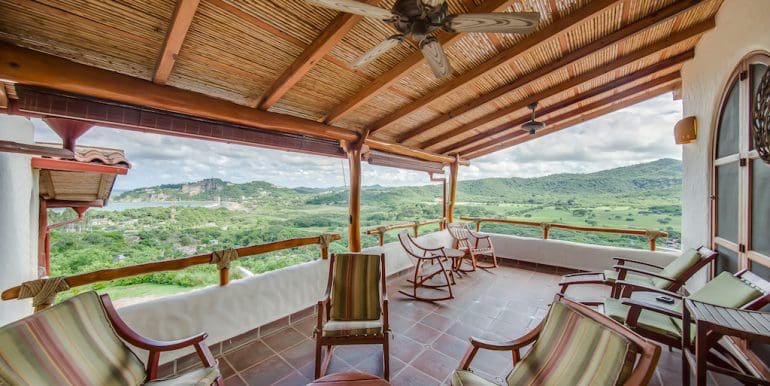
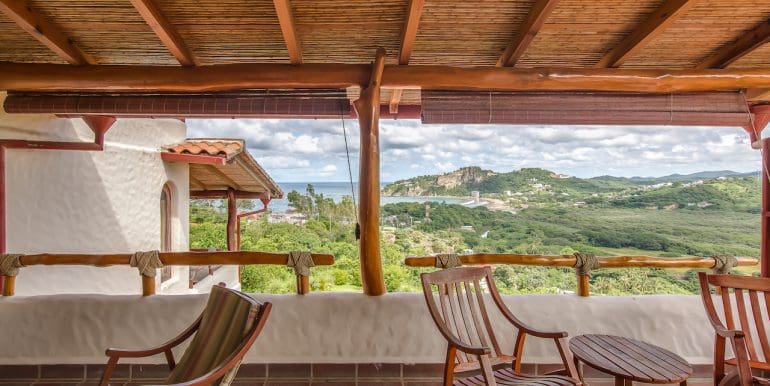
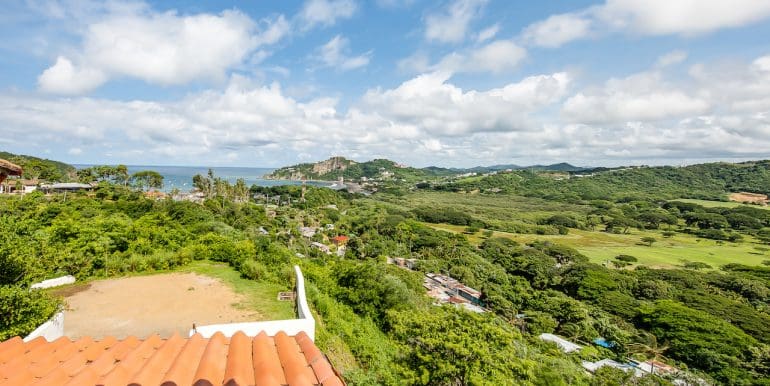
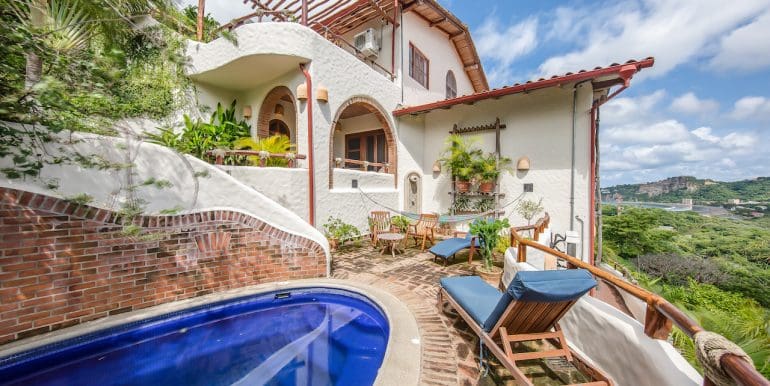
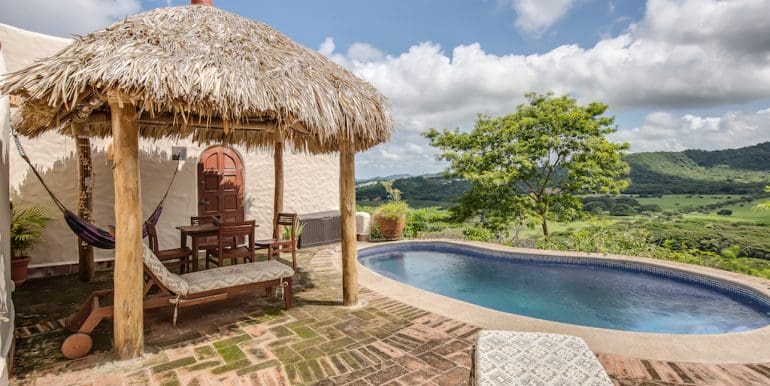
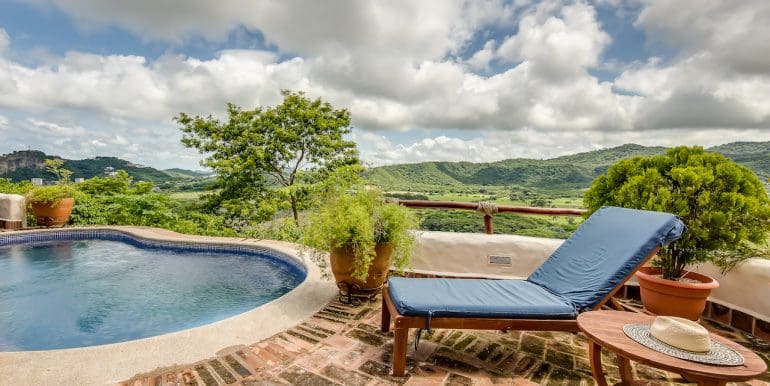
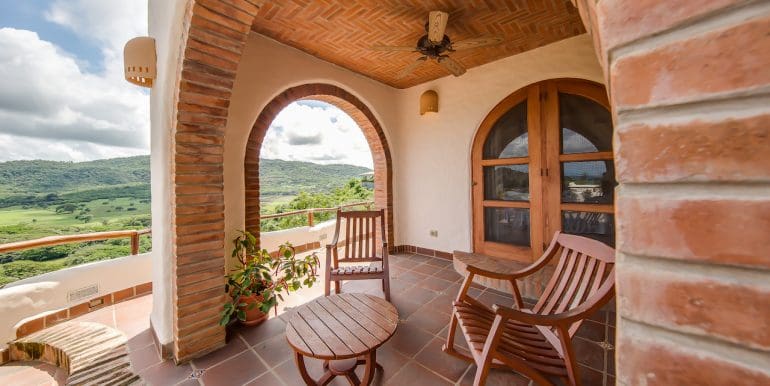

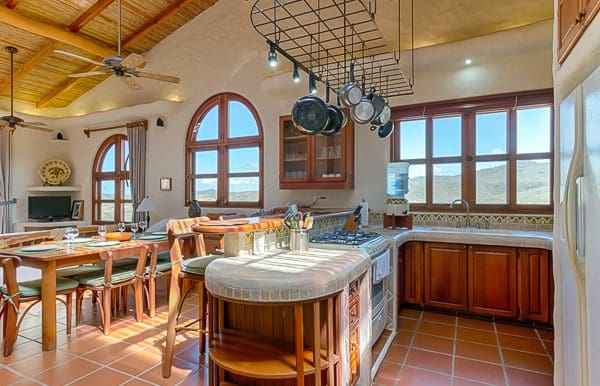
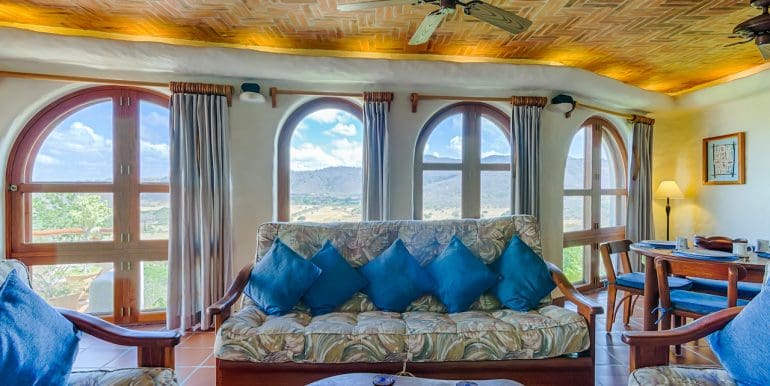
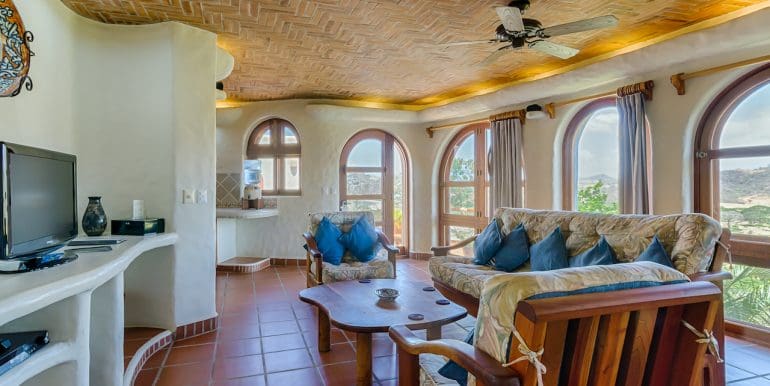
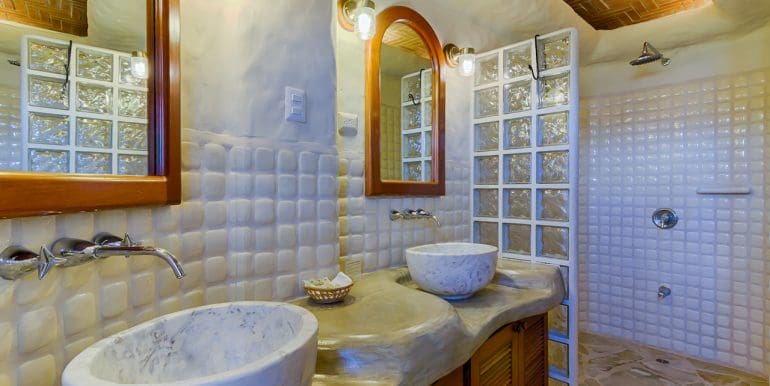
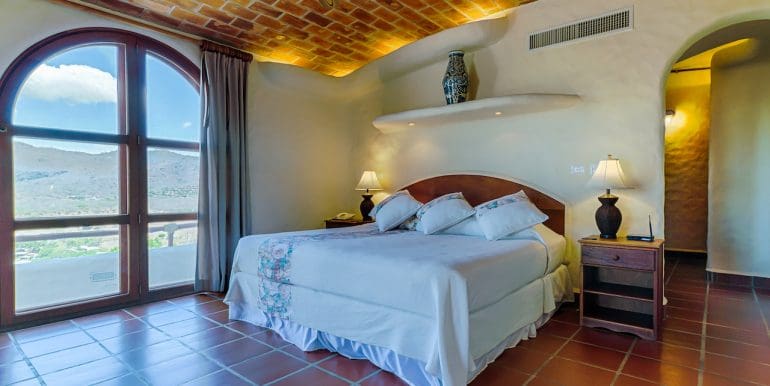
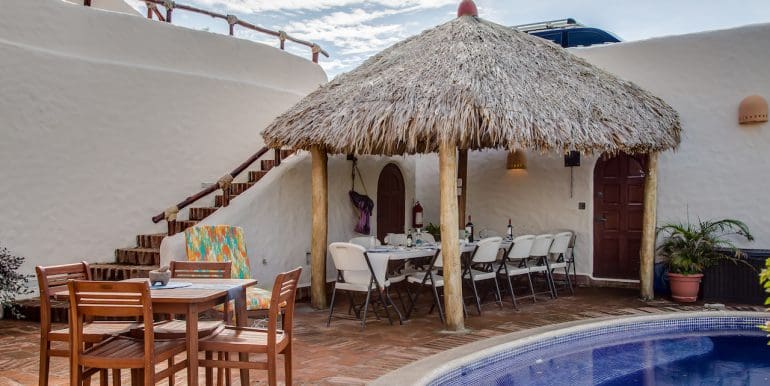
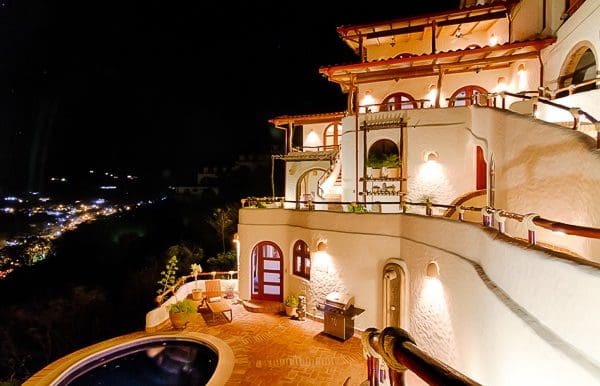
Once listed at $1,200,000, it is now down to the fire sale price of $494,000. Bear in mind that you could negotiate the price down even further. Though these measurements include the terraces, you are looking at $666 per m2 ($62 per ft2) for such high-quality real estate. The seller is definitely taking a substantial loss on the sale.
On the more affordable end you can get this cute one-bedroom house for $89,000. It is within a small gated community featuring 24/7 security. For less than $100k you have your plan B. It is a 20 minute walk from town and from the beach, in a quiet area.
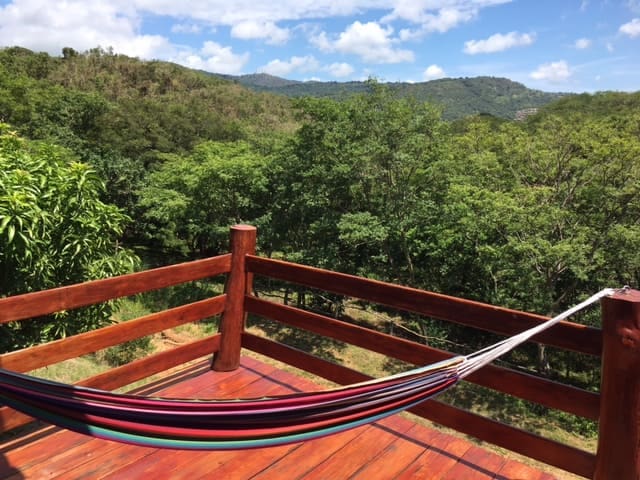
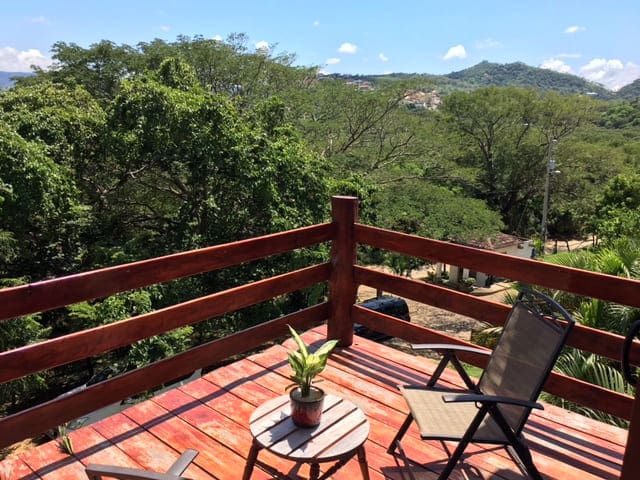
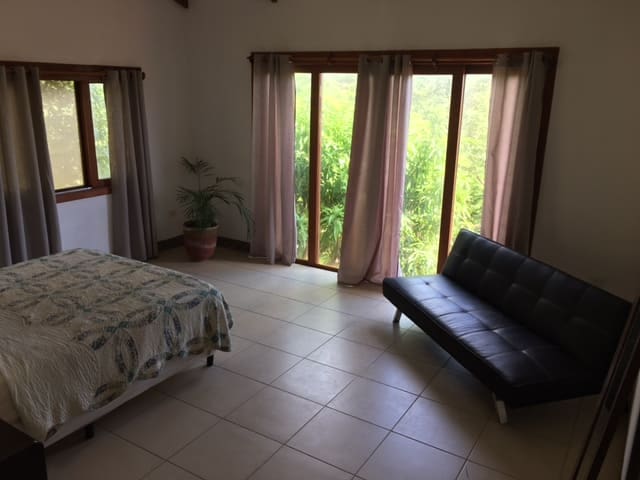
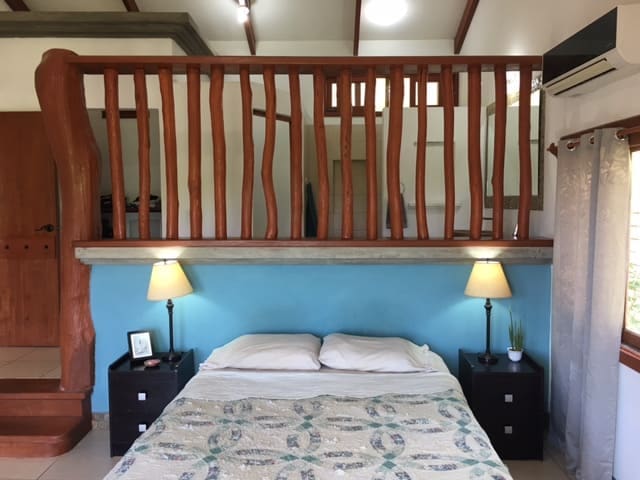
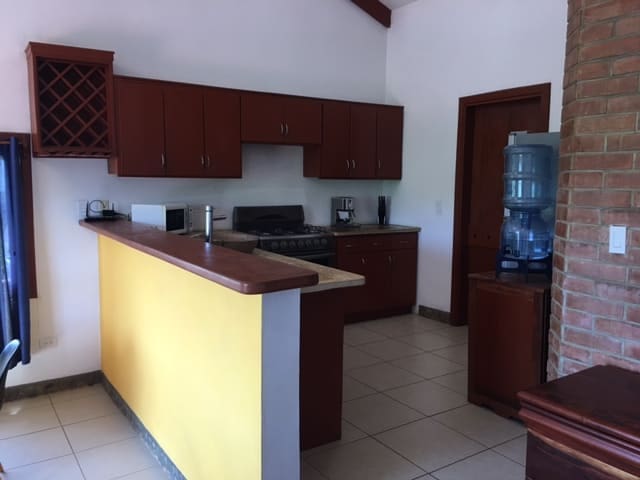
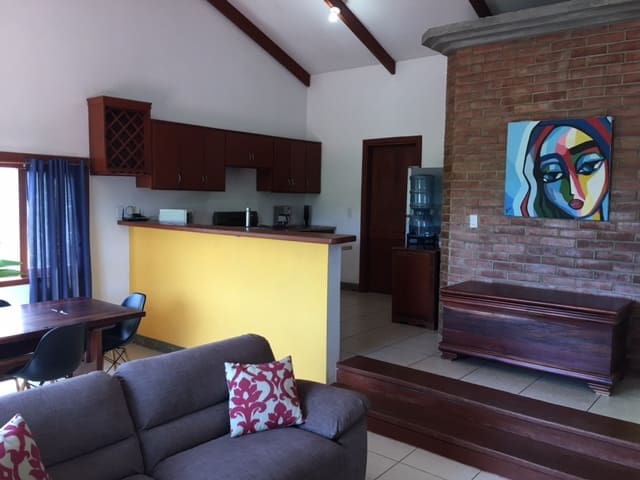
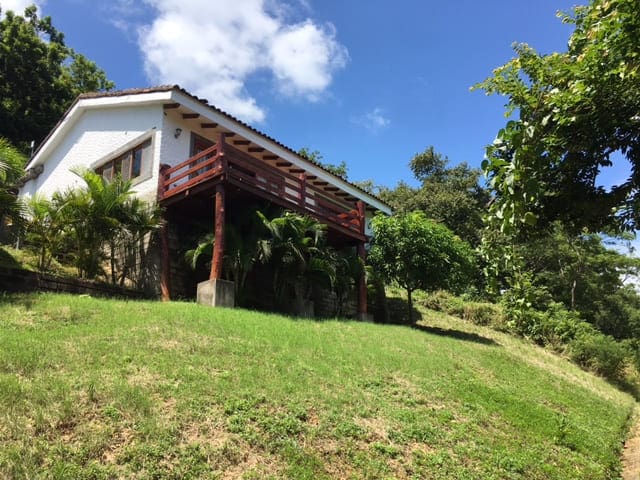
You might think it’s a great investment. But on the long term market you’ll probably get a mere $450 per month for it, and once you pay your HOA dues (maybe $150), finder’s fee for tenants, management fee, maintenance, taxes and empty months, you end up with a net yield of less than 2%.
I repeat, San Juan Del Sur is not an investment destination – it is a (lovely) lifestyle decision, with some potential side money to cover expenses.
The wildcard property in San Juan Del Sur, Nicaragua for preppers
- Do you believe the world economy will crash and people will have to go back to working the land?
- Do you believe governments in the West will become increasingly tyrannical and try to confiscate your wealth?
- Are you a Christian who feels increasingly persecuted in the secular West and want to live in a devout country where Christianity is widely practiced and respected?
- Do you want distance from governments and global elites who will want to force-inject something into you and your family?
- Are you simply sick of people and want to get away from it all?
- Do you want to live in sync with nature?
If you’ve replied yes to any of the above, I have the perfect property for you.
In the midst of a nature reserve, this property sits within a development and has 5 acres of land boasting over 200 fruit trees, a private well, massive water storage tanks, and enough solar panels to live in complete autarky. This house has it all.
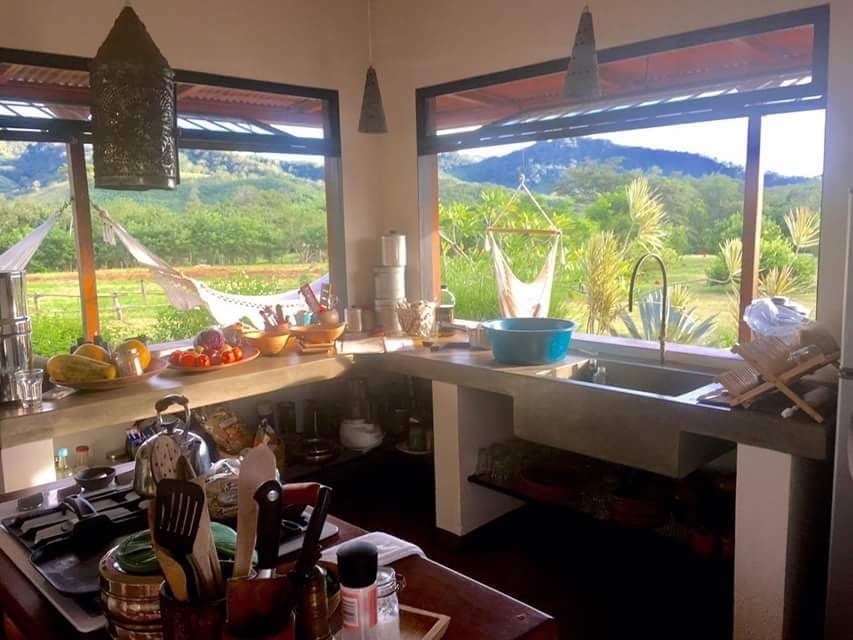
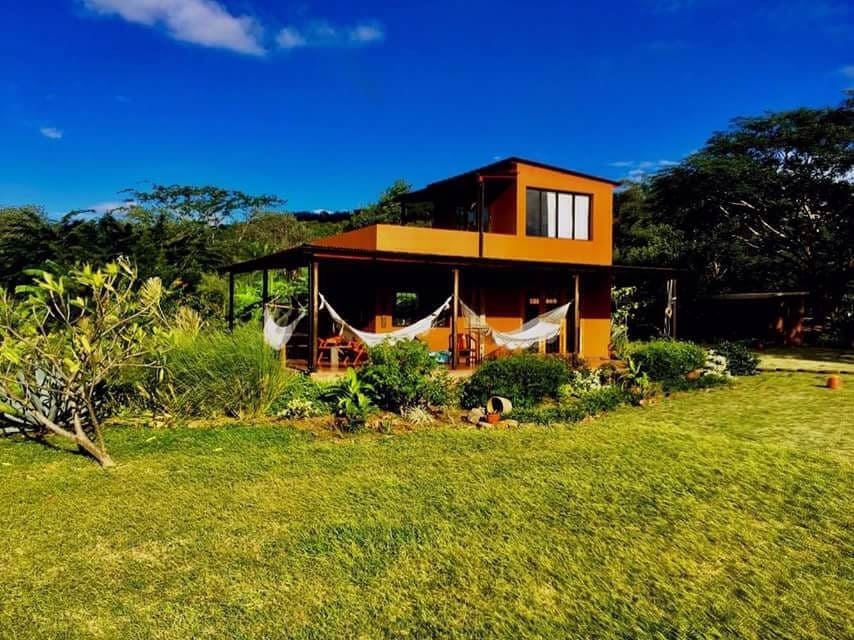


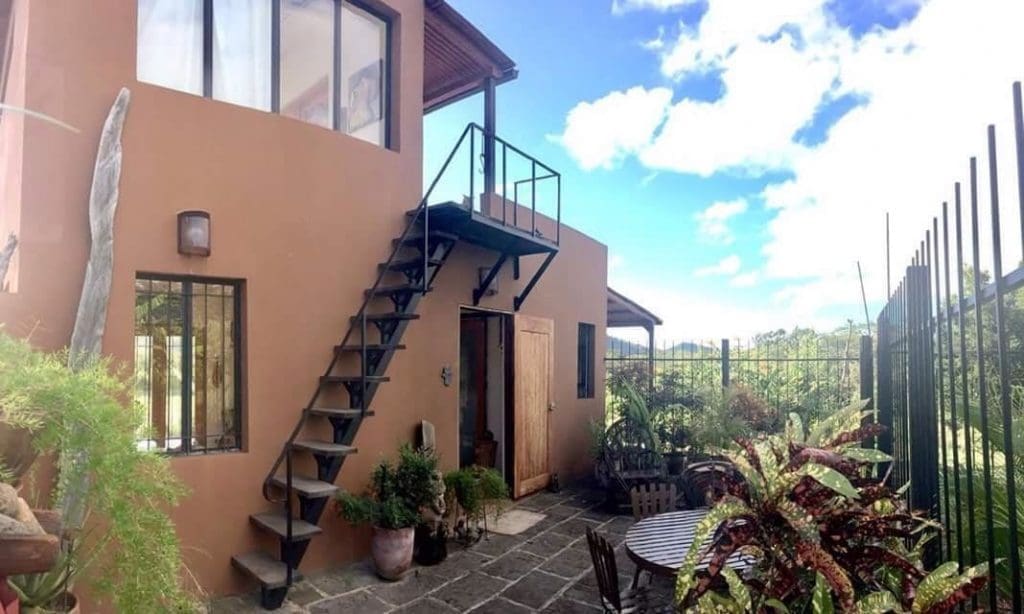

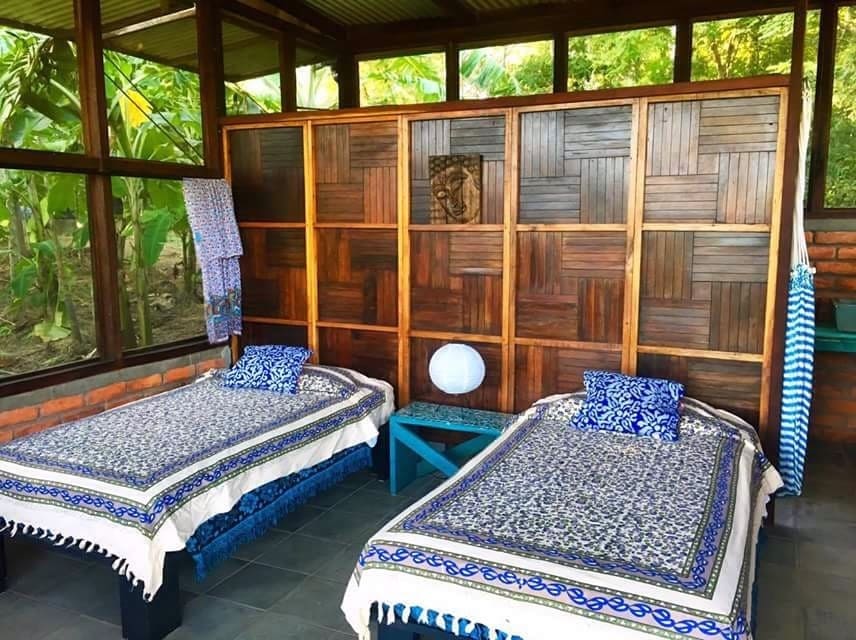
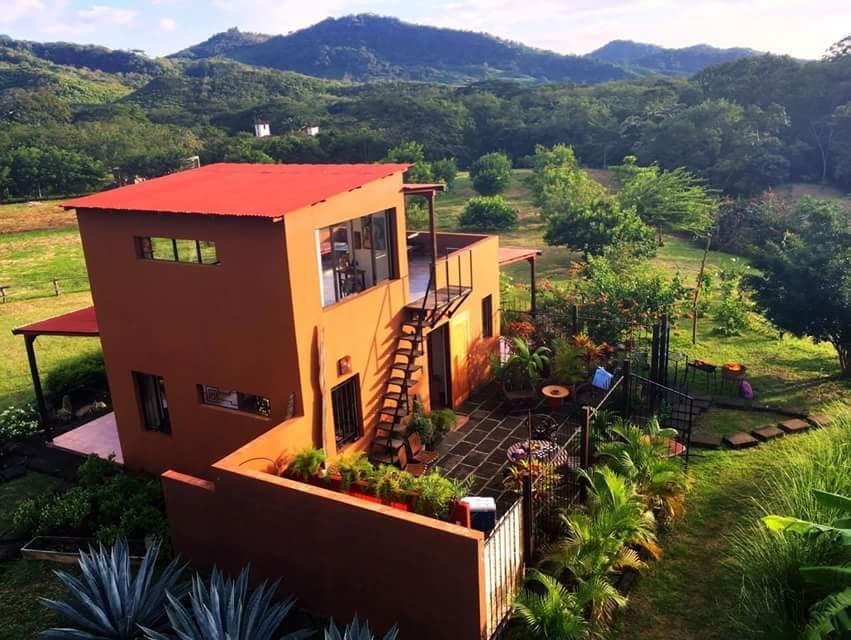

The property even includes a separate studio for guests, down the pebbled path. It is a short drive away from San Juan Del Sur, but just far enough to live in peace.
Buy the house, get some satellite internet, dig a hole in the ground for your gold, buy some guns and ammo on the black market, and stand ready to face any criminal (government or otherwise) attempts to encroach on your freedom. 🙂
A real estate investment in Granada, Nicaragua
Granada offers a very different value proposition. It is a lively little colonial town of about 100,000 souls, nestled on the great lake of Nicaragua. The historical town is comprised of lovely little colonial homes and beautiful Catholic churches. It is quite touristy, but unlike San Juan Del Sur it is not dominated by expats. So you can really live a local life. It also has a selection of bilingual schools.
The region has beautiful national parks for hiking, along with a string of volcanoes, both active and inactive. The earth is extremely fertile. Finally, it is a bit over an hour’s drive away from the capital city Managua.
Granada has more investment potential. While the San Juan Del Sur real estate market is mostly driven by foreigners, Granada has a large local market. It is also an easy weekend getaway for the Managua elite, many of whom have weekend homes around Granada.
One morning, when I took the express bus to Managua, I noticed many middle class workers commuting to the capital, such a doctors. Instead of living in a large city such as Managua, locals can commute for an hour and live in a lovely little town.
Given the country’s positive demographics, as urbanization increases, and as the country grows economically, Granada is likely to attract ever more local demand for real estate. As long as you avoid the expensive colonial housing in town, which is inflated by international buyers, you can tap into the local middle class and high-end market, properties which are less prone to volatility in the long run.
This house consists of four separate apartments (three two-bedroom and one one-bedroom), and is located ten minutes walking distance from the central park. The units are not much to look at, but it is a good retirement plan for someone on a budget or even as an investment.
Priced at $119,000, you can probably get $250 a month per unit renting to Western retirees who want to spend a few months in the sun. The local market is also an option for +-$200 per unit. Maintenance costs are low, and on the 1st of each month you can get out of your apartment in your PJs and go knocking on doors to collect your cash. This cash would be more than enough for you to lead a modest life in Granada.
A modest life in Granada includes healthcare, chicken or fish everyday, fresh fruit, and a beer or two every night.
Any social security check or passive income from back home would be pure savings.
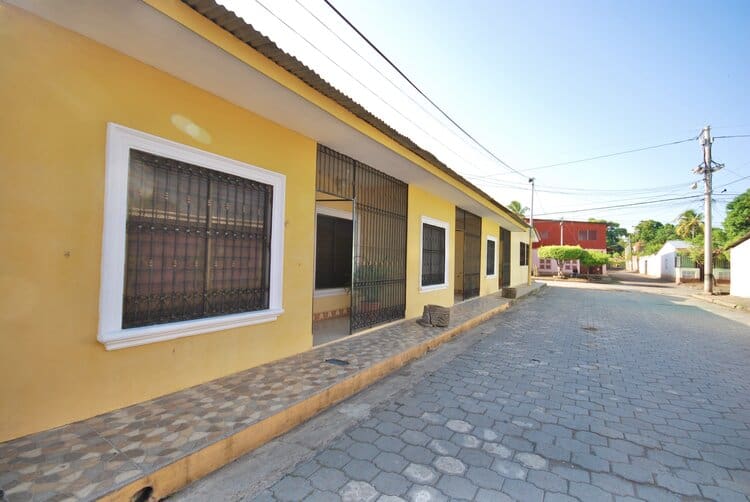
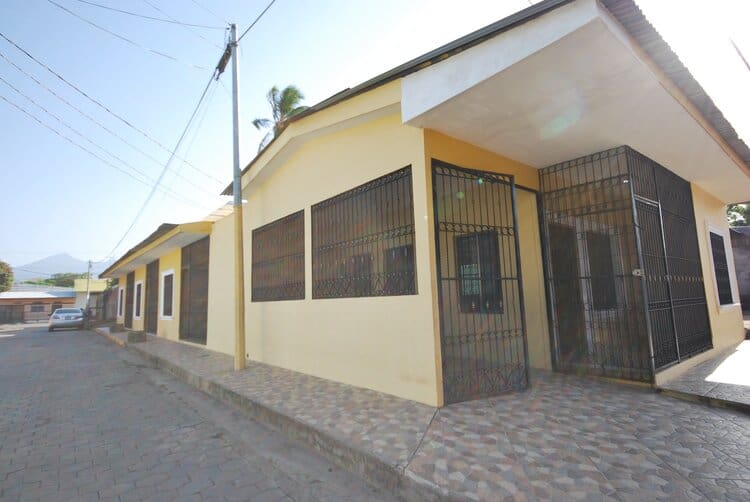
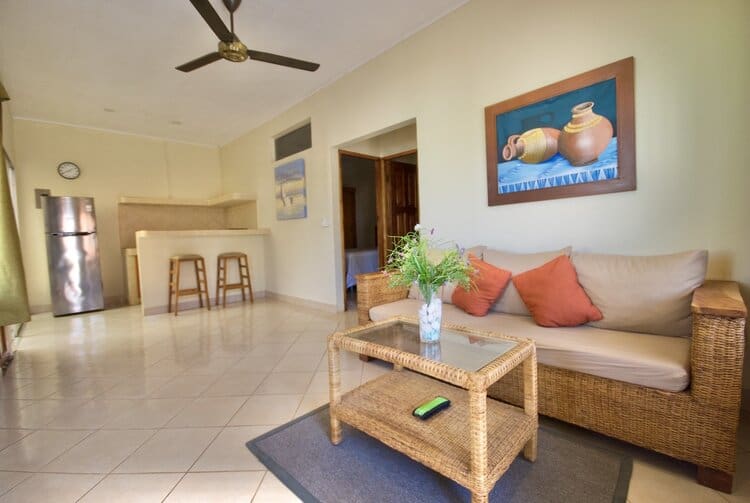
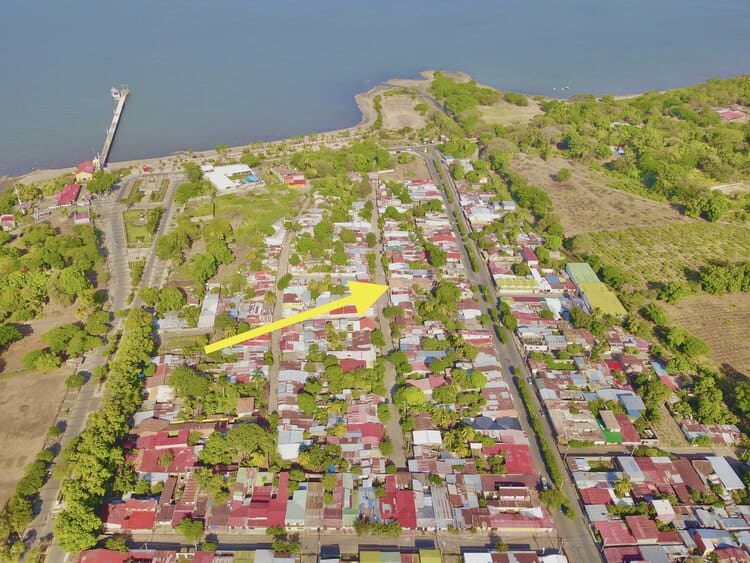
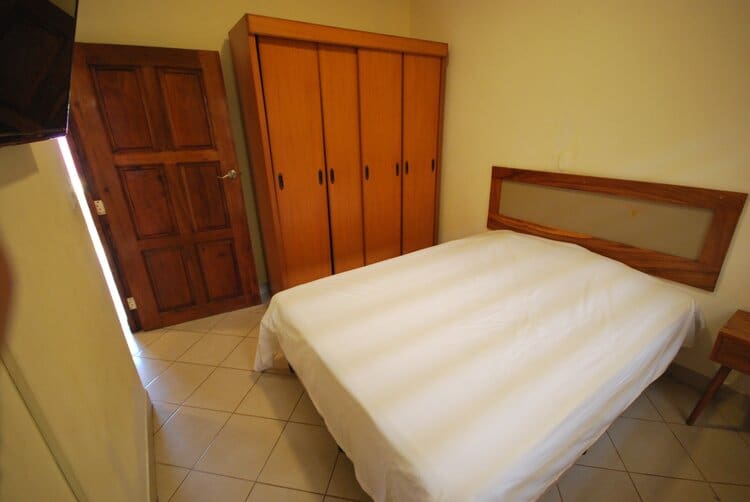
This house is also a good call option on life. You could buy it and get a rental management company to rent out the units. You’d probably get a net yield of about 4-5% after all fees and maintenance for the four units. And once you feel like you need to escape, then you would have your cash-flowing Plan B ready.
Living in peace close to Granada
At $215,000, this lovely four-bedroom house sitting on almost two acres of land has a swimming pool, a terrace with a view of the Mombacho volcano, fruit trees, over 200 coffee plants, fences around the property and an electric gate at the main entrance.
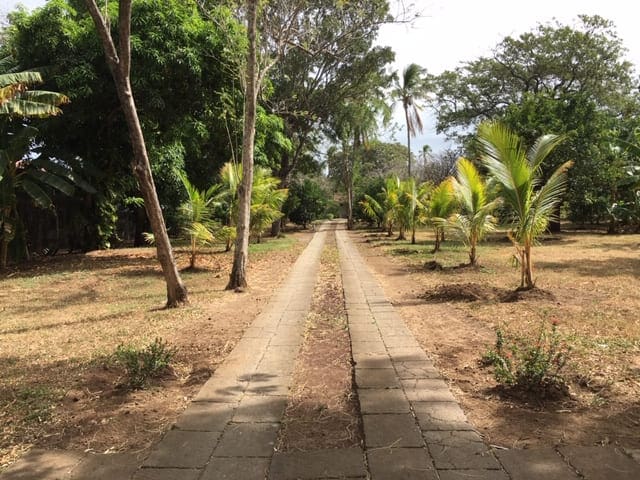
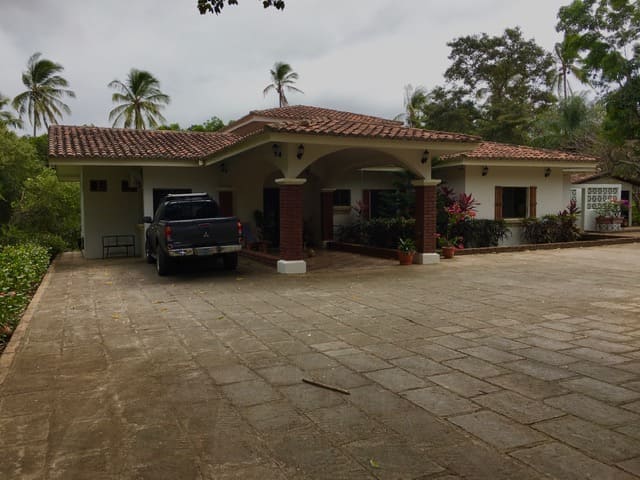
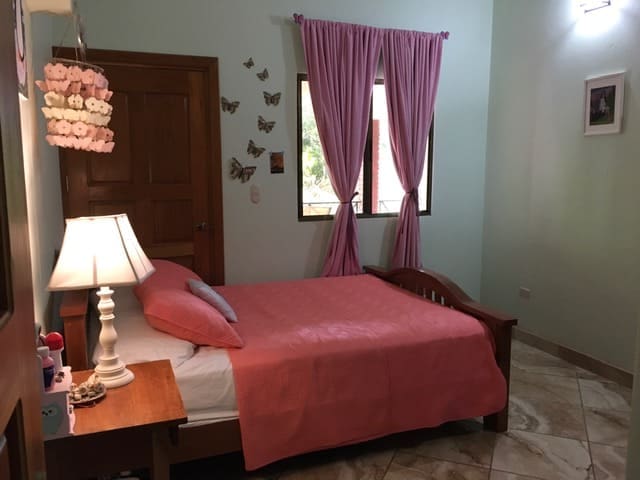
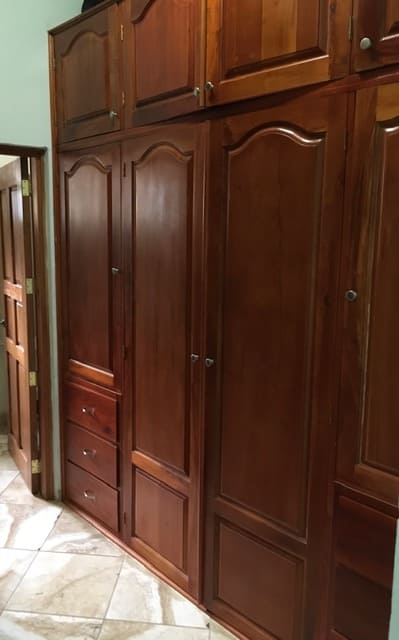
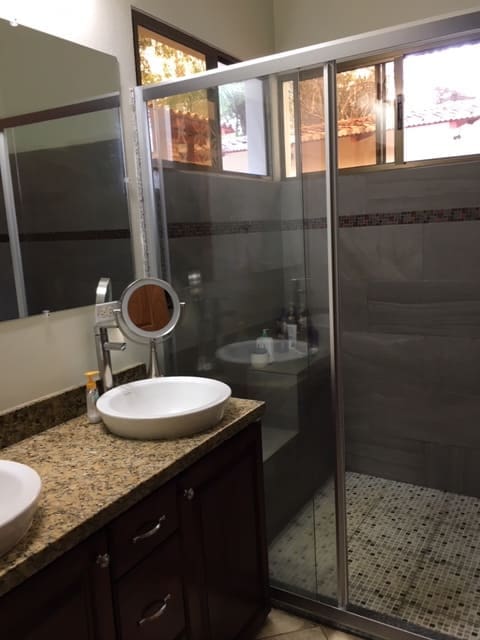
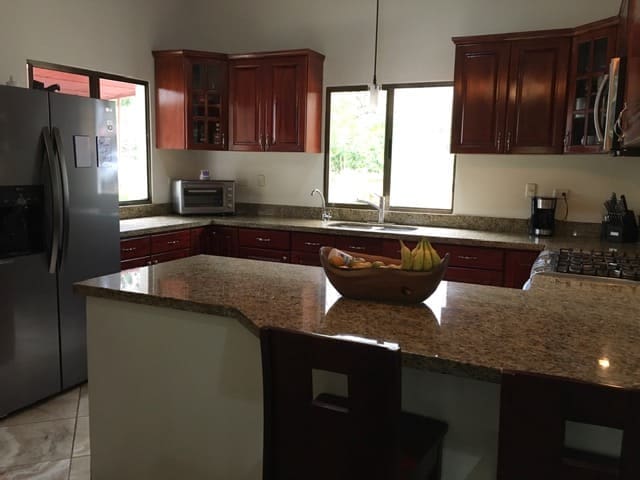
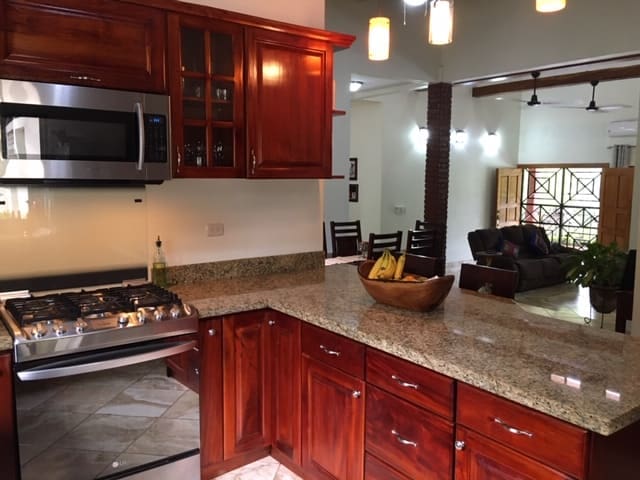
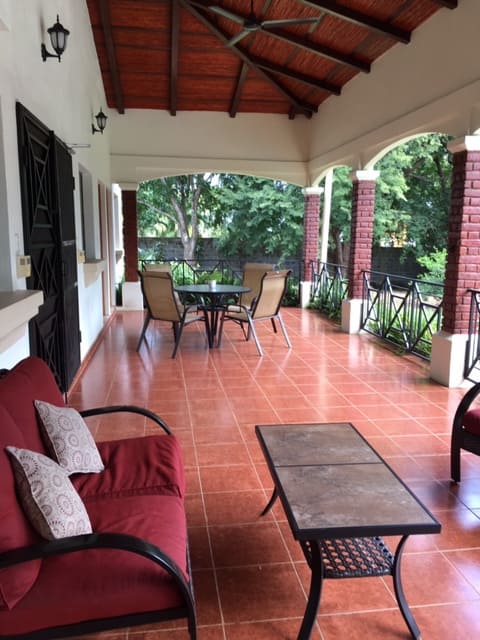
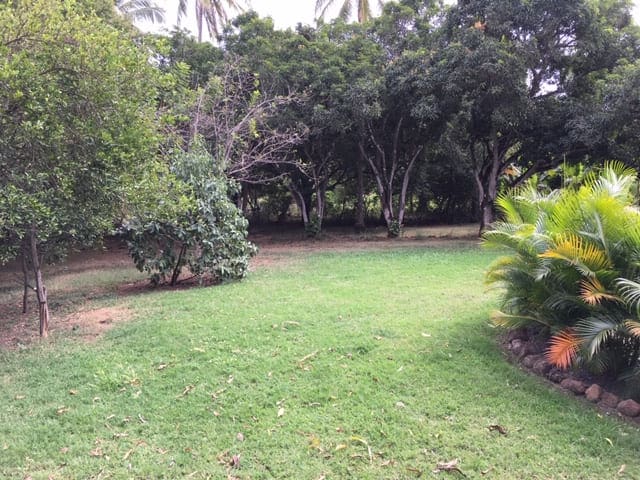
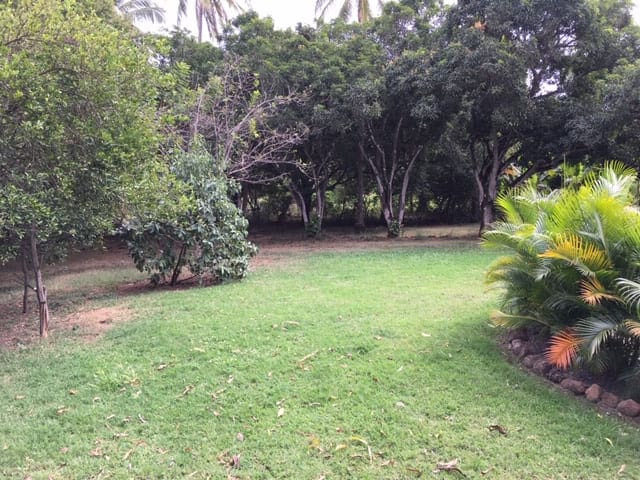
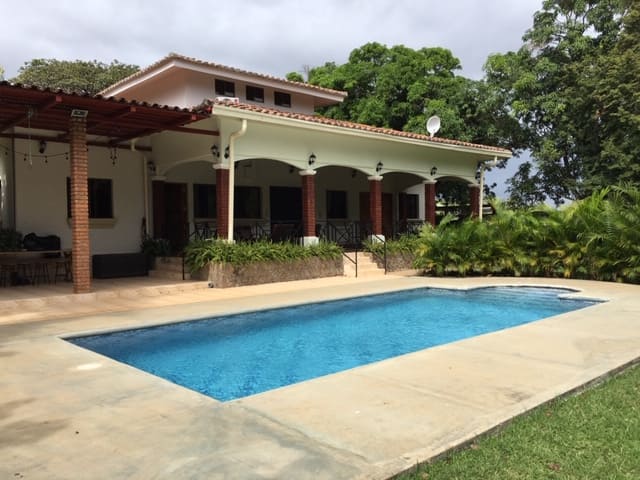
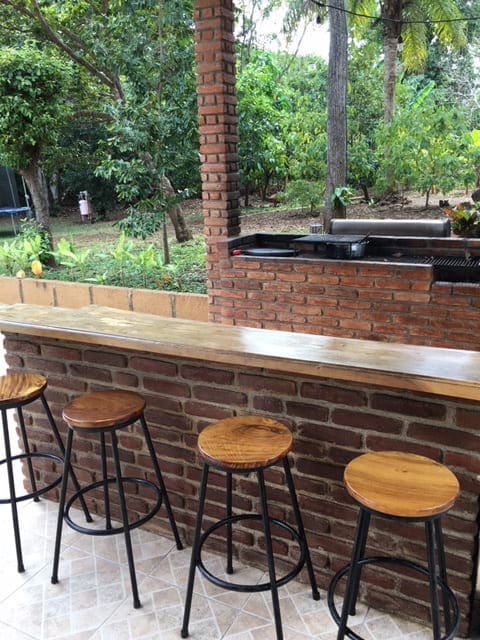
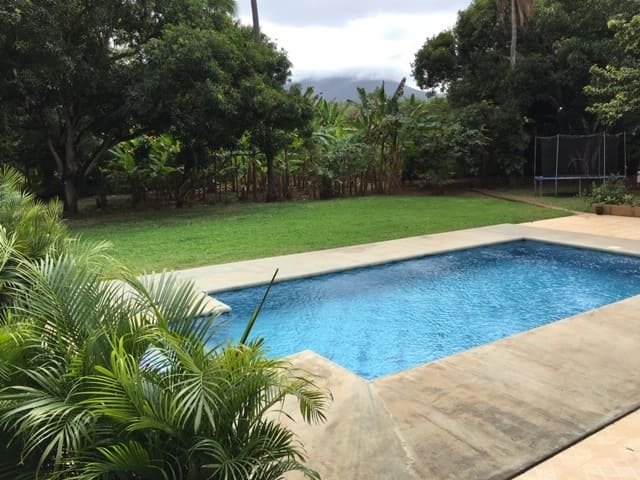
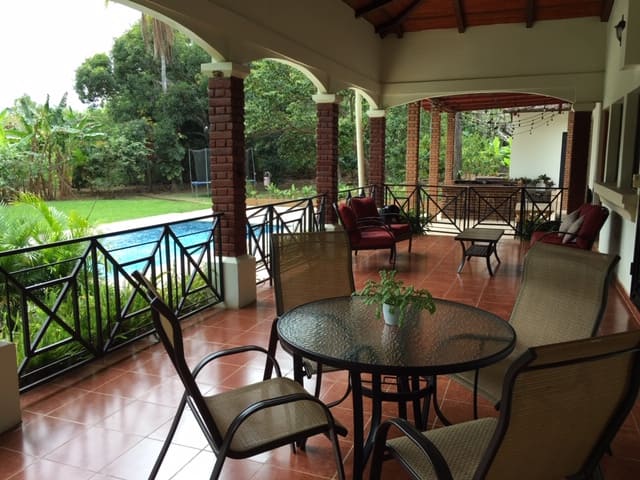
It is a good “plan B”, yet close to the amenities and comfort of a large town (Granada) a few minutes down the road, and of a large city (Managua) with an international airport a little over an hour away.
Don’t expect this to be a good rental property. The rental market for such housing is limited.
A few tips to navigate the real estate investment market in Nicaragua
- Bear in mind the economic and geopolitical situation in Nicaragua. I suggest you read my article on the matter.
- Get a good lawyer to thoroughly check the title deeds and to make sure the right person is signing the documents. Sometimes land may belong to several members of a family, and a person will take the “initiative” to sell.
- The market is quite illiquid, so don’t expect to be able to sell easily.
- The expat market is dominated by North Americans. If you are European, you must understand this. Generally speaking, North Americans and Europeans have different expectations when it comes to real estate. What may be acceptable to a European might be old and shabby for a North American. Real Estate depreciates a lot faster in North America than in Europe. So be careful not to catch a falling knife that no North American would want to buy from you.
- It is a buyer’s market out there – negotiate.Take you time and be rewarded with double-digit discounts.
A warning about Home Owners Associations (HOA)
The expat market has a lot of gated communities with Home Owners Associations (HOA). You MUST take this into account when buying.
If you aren’t from North America, you might not be familiar with how these HOAs operate and the impact they can have on your property and lifestyle. Sometimes, HOAs have very high fixed monthly charges which can mean make just holding your property a significant expense.
Ask to see the finances of the HOA. Is the HOA in debt? Are the other members of the HOA paying their dues on time?Has the HOA been saving money for future structural maintenance and repairs? If the HOA is poorly managed, the liability becomes shared liability, and selling a property with a defaulting HOA can be very hard.
Finally, who is managing the HOA? Not to be politically incorrect, but you want to make sure the values of the HOA managers are aligned with your values. In some cases, these HOAs can be managed by bored Anglo-Saxon retirees who become complete tyrants and seek to impose endless rules for the sake of safety and conformity (fines for not mowing the lawn, etc).
This shouldn’t be much of an issue in Nicaragua, as the most persnickety retirees go for gated communities in Florida or Arizona, but nevertheless watch out.
Taxes on your real estate investment in Nicaragua
When purchasing your property, expect to pay about 6% in transactions costs for legal fees and various taxes. The whole purchasing process takes 2-3 months. It’s not quick, but not particularly complicated either. Your lawyer will handle everything.
Annual property taxes are about 1% of the assessed tax value, which is typically less than the real value.
The capital gains taxes on real estate in Nicaragua are only 10%. As for the income tax on rental income, it depends on whether you bought the property in your own name or using a corporation.
If the property is in your own name, you can expect to pay about 15% as a non-resident, and up to 30% as a resident. 30% is the top local income tax bracket, so you will most likely get taxed much less. If the property is in the name of a corporation, expect to pay about 30%, but in this case many deductions are allowed.
Make sure you get a good lawyer. Skimping on legal fees when purchasing abroad is one of the biggest mistakes you can make. If you want the contact information of a good lawyer, feel free to get in touch with me. Don’t use lawyers recommended by real estate agencies as there is inherent bias.
Positive and negative trends influencing your real estate investment in Nicaragua
Positive:
- As the economy deteriorates in Western countries, pensions and social security will be negatively impacted. Expect an increase in boomers moving South where healthcare and cost of living are more affordable. This should drive more Western retirees to consider places like Nicaragua.
- As the economy moves online, millennials will prefer to work from low cost bases. Nicaragua shares time zones with North America, and its territorial tax system results in only locally sourced income being taxed, making it a particularly interesting option.
- Many residency options make Nicaragua very attractive, including for homeowners.
- Positive local demographics.
- Under-developed tourism industry.
Negative:
- A potential balance of payment issue in Nicaragua – which could lead to further devaluation of the Cordoba.
- Taxes remain low, even on real estate, but the government will surely raise them to remedy budgetary shortcomings.
- Externally and internally driven political instability limiting investment into the country.
- American foreign policy bullying which will complicate access to funds from the IMF and the Word Bank in case of need
Conclusion: Should you make an investment in Nicaragua real estate?
As this stage, it is mostly a lifestyle or plan B decision. There are no compelling catalysts that lead one to believe that prices will increase in the short term. It not a bad place to have some exposure to, but don’t go all-in. Some property investments in Nicaragua make sense as long as the currency does not depreciate too much. In all likelihood though, the currency’s depreciation will accelerate.
For a pure real estate investment based on numbers, there are countries which I have discussed in previous posts that offer better returns.
If you do want to make a real estate investment in Nicaragua, don’t be in a rush. It is currently a buyer’s market with many Westerners looking to exit their investments. Come to Nicaragua, spend a few weeks or months if you want, and negotiate. You should be able to land some undervalued property at some attractive prices for your lifestyle or Plan B.
If you want a good buyer’s agent who can help you navigate the market – get in touch with Natalie. She can help you save money by avoiding mistakes and by sharing local insights to make the right purchase.
I also wrote about the real estate market in the capital city Managua and Gran Pacifica.
Services in Nicaragua:
- My favourite realtor in San Juan del Sur, Nicaragua
- Create a company in Nicaragua
- How to obtain Residency in Nicaragua
- My Real Estate Lawyer in Nicaragua
Articles on Nicaragua:
- A Real Estate Investment in Managua or Gran Pacifica, Nicaragua?
- Investing in a Teak Wood Plantation, is it worth it?
- Full analysis of the San Juan del Sur real estate market
- Why buy a house in San Juan del Sur, Nicaragua – great value in Central America
- Low EMF housing in Nicaragua
- Pros and cons of living in Nicaragua
- $65,000 beachfront land plots near Managua, Nicaragua
If you want to read more such articles on other real estate markets in the world, go to the bottom of my International Real Estate Services page.
Subscribe to the PRIVATE LIST below to not miss out on future investment posts, and follow me on Instagram, X, LinkedIn, Telegram, Youtube, Facebook, and Rumble.
My favourite brokerage to invest in international stocks is IB. To find out more about this low-fee option with access to plenty of markets, click here.
If you want to discuss your internationalization and diversification plans, book a consulting session or send me an email.

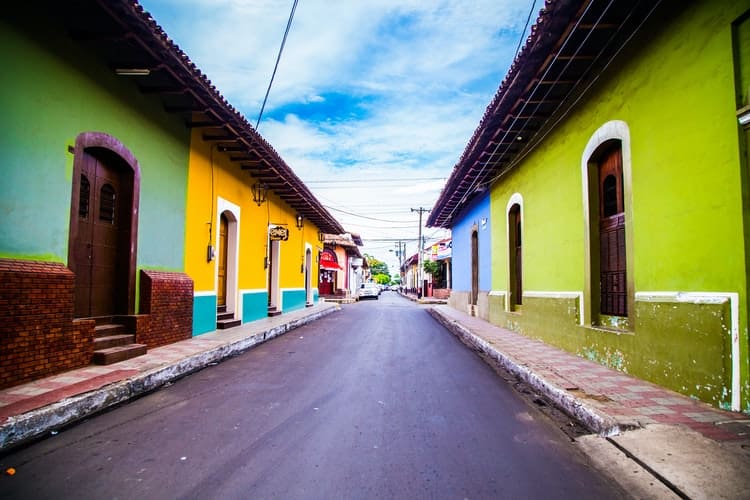

Excellent and to the point report about Nicaragua, you are quite correct the Corona Virus will strip a lot of wealth worldwide and that is very unfortunate for the whole world no one is excluded.
Looking at investing in Granada, for both lifestyle and investment reasons. Perhaps a 1 or 2 BR unit that I can occupy 2-3 months a year and Air BnB the rest of the year. So, any update on this excellent article would be much appreciated.
Thank you. Going there this December so will update it for sure.
Any update from your trip in December? Going house shopping in del sur in February